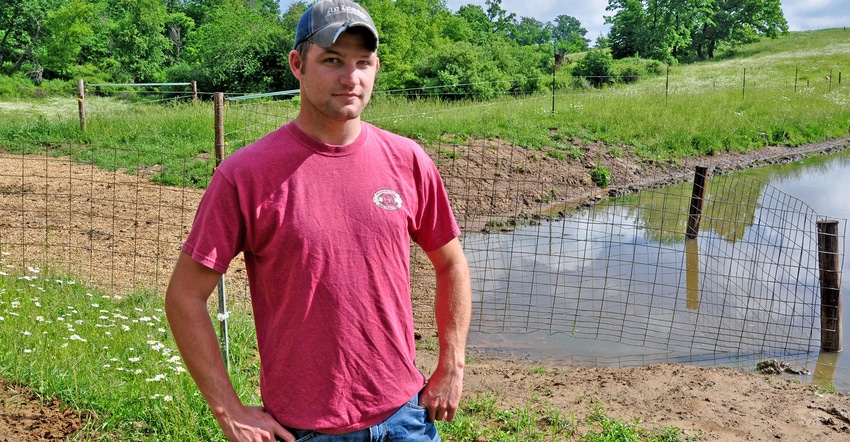September 27, 2021

Farmers interested in implementing conservation in their operations can get valuable technical and financial support from programs like the Conservation Stewardship Program (CSP) and Environmental Quality Incentives Program (EQIP). In Iowa, an application deadline has been set for Oct. 1.
Administered by USDA's Natural Resources Conservation Service (NRCS), CSP and EQIP are both working lands conservation programs. They help farmers implement conservation onto working ground, as opposed to taking the land out of production.
CSP is designed to enhance existing conservation efforts operation-wide. To be eligible, a farmer must demonstrate current conservation efforts, address resource concerns for their region, and be willing to implement additional practices. Available practices include cover crops, rotational grazing and extended crop rotation.
EQIP is designed to help producers implement conservation that focuses on a particular resource concern, such as erosion or water quality, with a single practice or project. Many practices available in EQIP are also options in CSP, although the program is unique in offering a number of structural practices, like terraces, to choose from as well.
Over the years, these programs have helped thousands of farmers advance conservation across Iowa. In 2020, 980 EQIP and 228 CSP contracts were active statewide. In CSP, the most popular practices were cover crops, integrated pest management, nutrient management, herbaceous weed treatment, and residue and tillage management.
Both programs have provided valuable assistance for Ryan Collins, a young farmer taking on his family's 170-year-old operation near Harpers Ferry, Iowa.
After hearing about CSP from a neighbor, Ryan enrolled and is now in his second contract. He has also used EQIP. Over the years, the programs helped him jump-start rotational grazing, rotation of his mineral blocks, GPS-targeted spraying, plant tissue testing to improve nitrogen management, and continuous no-till with high residue.
"We still do everything from the CSP contracts, that's been since 2011," Collins says. "We've just continued with it, because it's been beneficial ever since. The financial kick got us rolling, but once we saw the benefits with it, we wanted to keep going."
Wide range of farm practices
Those benefits are diverse, he says, ranging from conservation impacts to financial gain in the long run. The technical assistance provided by NRCS was also worthwhile.
"Having the NRCS office to lean on and get started with some of these programs and the technical assistance, it's been great for getting started," he says. "As a beginning farmer, that was huge."
CSP contracts are five years in length with the option to renew. EQIP contracts vary, but are typically shorter in length.
Applications for these programs are accepted at any time, but the Oct. 1 deadline indicates the cutoff for the next batch of funding. These batching dates can come once or multiple times a year; producers are encouraged to submit initial paperwork now to indicate interest in applying. Later in the application process, NRCS staff will make a farm visit and discuss practice options.
For more information, interested producers should reach out to their local NRCS service center as soon as possible to make an appointment; visit offices.sc.egov.usda.gov/locator/app.
To prepare farmers for their visit, the Center for Rural Affairs has released a series of fact sheets that answer frequently asked questions about these programs. The resources can be found at cfra.org/publications under the title, "What To Know About Implementing Conservation Practices."
Hansen is a policy associate with the Center for Rural Affairs.
Source: Center for Rural Affairs, which is responsible for the information provided and is wholly owned by the source. Informa Business Media and its subsidiaries aren't responsible for any of the content contained in this information asset.
Read more about:
Young FarmerYou May Also Like




